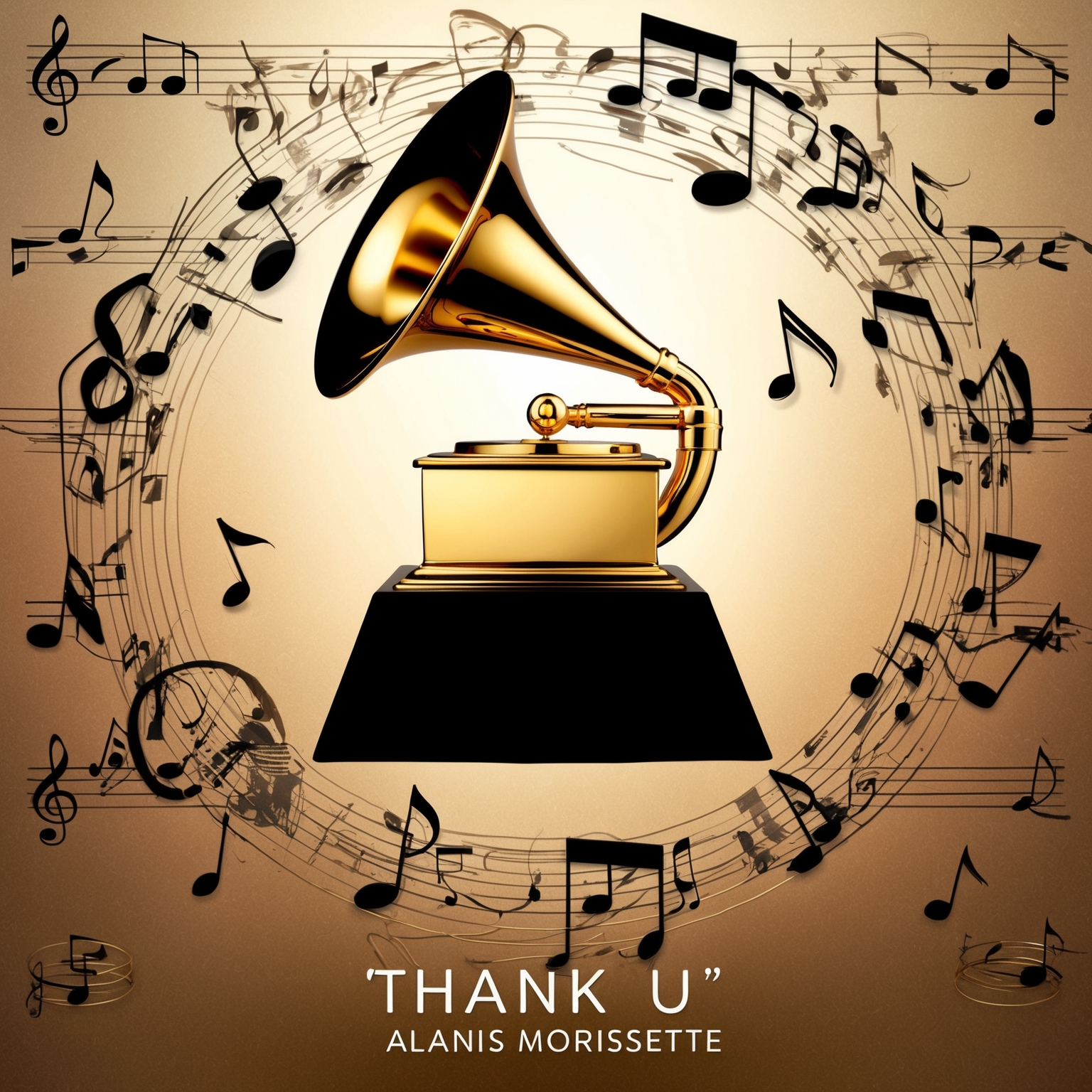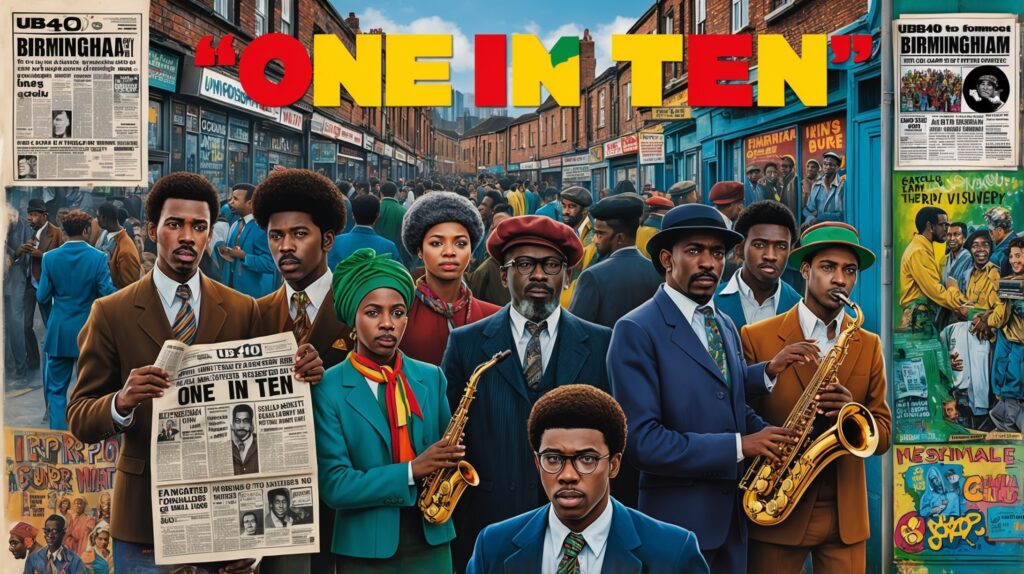Unveiling Alanis Morissette: The Artist Behind ‘Thank U’
Explore the journey of Alanis Morissette, the artistic powerhouse behind the impactful song ‘Thank U,’ from her early beginnings to her transformative experiences that shaped the song’s creation.

Alanis Morissette, a musical force to be reckoned with, has continually pushed the boundaries of alternative rock since her emergence onto the music scene. Known for her powerful voice and introspective lyrics, Morissette’s impact transcends the typical bounds of genre. The song “Thank U,” released in 1998, marked a pivotal moment in her career, showcasing not only her artistic maturity but also her newfound approach to songwriting after significant personal growth.
Born in Ottawa, Canada, Morissette’s early life was steeped in music, starting with piano lessons at age six and songwriting by age nine. Her career began with two pop albums in Canada that achieved moderate success, addressing a range of emotions and personal topics, gearing the young prodigy towards audiences hungry for authenticity. Her breakthrough came with her 1995 album, “Jagged Little Pill,” which turned her into a global sensation with its raw, confessional style.
By the time “Thank U” was released, Alanis had already established herself as a leading figure in the ’90s music landscape, celebrated for her fearless lyrical explorations. This song emerged after a profound period of reflection and personal growth following a trip to India. In the midst of the shifting tides of the late ’90s music scene, Alanis collaborated with producer Glen Ballard, creating tracks that reflected urgent self-exploration and laid bare a transformative journey. The reception to “Thank U” was initially mixed, given its introspective nature in contrast to the aggressive style she was known for, yet it resonated deeply with fans longing for a message of gratitude and introspection.
The Visionary Behind the Music: Glen Ballard
Dive into the world of Glen Ballard, the mastermind composer behind Alanis Morissette’s ‘Thank U.’ Explore his musical journey, unique style, collaborations, and the vital role he played in shaping this unforgettable track.

Glen Ballard is a name that resonates deeply within the music industry, renowned for his profound contributions as a composer and producer. Born in Mississippi in 1953 and raised in Natchez, Ballard’s early exposure to music set the stage for a remarkable career. After studying at the University of Mississippi, he moved to Los Angeles to pursue his dreams in the music world. Ballard’s journey started humbly but soon skyrocketed as he displayed his unique flair for crafting unforgettable melodies and lyrics.
Known for his versatile and eclectic style, Ballard’s influence spans across multiple genres, from pop to rock to R&B. A pivotal moment in his career was his collaboration with Alanis Morissette on her critically acclaimed album, ‘Jagged Little Pill,’ where he co-wrote and produced several tracks, including ‘Thank U.’ His musical influences are diverse, drawing inspiration from the greats like The Beatles and Mozart, which is reflected in his ability to fuse emotional depth with commercial appeal.
Ballard’s collaborative relationship with Alanis Morissette is particularly noteworthy. Together, they crafted songs that weren’t merely hits but cultural phenomena. For ‘Thank U,’ Ballard’s composition was integral to capturing the song’s deeply reflective and emotive essence, blending seamlessly with Morissette’s poignant lyrics. His compositional prowess added layers of complexity that complimented the spirit of gratitude and introspection encapsulated in the song.
Accolades and Artistic Reinterpretations: The Legacy of ‘Thank U’
Alanis Morissette’s ‘Thank U’ received a Grammy nomination and has been covered by various artists. It has also appeared in TV series, reinforcing its cultural significance.

‘Thank U’, a single from Alanis Morissette’s 1998 album ‘Supposed Former Infatuation Junkie,’ has made a significant impact not only on charts but also within various cultural contexts. When it comes to accolades, the song garnered attention quickly and contributed to Morissette’s nomination for Best Female Pop Vocal Performance at the 42nd Annual Grammy Awards in 2000. Though it did not secure a win, the nomination itself was a testament to the song’s impact and artistic merit.
In addition to its accolades, ‘Thank U’ has inspired numerous artists to reinterpret it through covers. Notably, popular band Tegan and Sara covered the song during their live performances, infusing it with their unique indie-pop sound. Furthermore, artists on platforms like YouTube have also covered ‘Thank U,’ making it a beloved choice for musicians who admire Morissette’s work.
Beyond traditional music accolades, ‘Thank U’ has made its presence felt in other media. The song was featured in the hit television series ‘Cold Case,’ where it underscored the narrative with its introspective and reflective tone. These appearances have helped cement ‘Thank U’ not only as a successful single but also as a piece of cultural art that extends beyond the music industry.
From Release to Resounding Success
Discover the chart-topping success of Alanis Morissette’s “Thank U,” from its impressive debut to becoming a global hit.

Released as the lead single from her fourth studio album, “Supposed Former Infatuation Junkie,” in October 1998, Alanis Morissette’s “Thank U” resonated strongly with audiences and critics alike. The song marked her return after the enormous success of her 1995 album, “Jagged Little Pill,” creating a buzz in the music industry. Upon its release, “Thank U” debuted on various music charts worldwide, captivating listeners with its introspective lyrics and unique sound.
In the United States, the song performed exceptionally well. It reached number 17 on the Billboard Hot 100, showcasing its commercial appeal despite the competition of hits from other major artists at the time. “Thank U” also secured the top position on Billboard’s Adult Alternative Songs chart and remained dominant on Canadian charts, peaking at number one on the Canadian RPM Top Singles Chart. This success mirrored the continued popularity and influence Morissette had maintained since her breakthrough.
Globally, “Thank U” charted impressively across multiple regions. In the UK, it reached number five on the UK Singles Chart, further solidifying its international success. With strategic marketing campaigns, including memorable live performances and a compelling music video, Morissette and her team ensured the song’s message reached diverse audiences. This approach underscored the enduring legacy of “Thank U,” which remains a significant entry in Morissette’s esteemed career.
Exploring the Visual Journey of ‘Thank U’
The music video for Alanis Morissette’s ‘Thank U’ stands out for its bold depiction of vulnerability and self-exploration, making a significant impact alongside the song’s introspective themes.

Alanis Morissette’s ‘Thank U,’ a song from her 1998 album *Supposed Former Infatuation Junkie*, enjoyed significant exposure due to its intriguing music video. Directed by the well-known Stéphane Sednaoui, who is famous for his innovative takes in the music video art form, the video premiered in 1998 and quickly captured the audience’s attention. The visual narrative complements the introspective and vulnerable themes of the song, creating a memorable juxtaposition that continues to resonate with fans to this day.
One of the standout aspects of the music video is its unique concept, where Morissette walks unclothed through crowded urban streets, symbolizing vulnerability and openness, reflecting the song’s introspective nature. This audacious portrayal of vulnerability sparked extensive conversations around self-acceptance and authenticity. The decision to present such a bold and stripped-down version of herself visually intensifies the song’s themes of gratitude and self-exploration. People appreciated how the video challenged societal views on nudity and self-representation.
The video received acclaim not only from fans but also from critics, who lauded its courage and artistic presentation. While it did not feature celebrity cameos or an elaborate cast, its minimalist approach allowed the focus to remain squarely on Morissette’s potent lyrics and fearless performance. The collaborative efforts of Stéphane Sednaoui’s direction and Morissette’s daring artistry made the video a defining moment in the late ’90s music scene, contributing significantly to the song’s enduring popularity.
Decoding the Musical Framework of ‘Thank U’
Thank U’ by Alanis Morissette showcases a sophisticated song structure with a blend of introspective lyrics and a soothing harmonic progression, marking a pivotal point in her musical evolution.

Alanis Morissette’s ‘Thank U’ is a captivating exploration of musical composition and structure, highlighting her evolution as a versatile musician. This song, written in the key of G major, embraces a soothing yet reflective tone that perfectly complements its introspective lyrics. The song makes extensive use of basic yet emotionally resonant chords, creating a simple yet profound harmonic progression that allows the lyrics to truly shine.
At a moderate tempo of approximately 94 beats per minute, ‘Thank U’ offers a relaxed rhythmic pace that places emphasis on the melody and message. The interplay of acoustic and electric guitars provides a dynamic yet cohesive sound, adding depth to the overall composition. The song also incorporates keyboards and subtle percussion elements that further enhance its ethereal quality, creating a multi-layered texture within the arrangement.
Analyzing the melody, the song employs a combination of ascending and descending motifs that convey a sense of introspection and gratitude, mirroring the song’s lyrical themes. The harmony is both comforting and empowering, reinforcing the song’s underlying message of acceptance and personal growth. In the context of Morissette’s discography, ‘Thank U’ signifies a departure from the raw, angst-driven style of her earlier works, such as ‘Jagged Little Pill’, and marks a transition towards a more mature, introspective sound. This evolution is further emphasized by the production expertise of Glen Ballard, who helped shape the song’s polished yet heartfelt aesthetic.
Interestingly, the song was recorded at a time when Morissette had undergone significant personal transformation, which is mirrored in both the music and lyrics. The recording sessions, held at renowned studios in Los Angeles, were marked by a sense of openness and experimentation, as Morissette sought to capture the essence of her newly gained insights. This environment fostered a creative flow that is palpable in the song’s reflective and liberating feel, making ‘Thank U’ a pivotal piece in her musical journey.
Unpacking the Depth of Alanis Morissette’s Lyrics
Explore the intricate lyrics of Alanis Morissette’s ‘Thank U’, where themes of gratitude and introspection intertwine to create a powerful narrative.
How ’bout stopping eating when I’m full up?
How ’bout them transparent dangling carrots?
How ’bout that ever-elusive kudo?
Thank you, India
Thank you, terror
Thank you, disillusionment
Thank you, frailty
Thank you, consequence
Thank you, thank you, silence
How ’bout me not blaming you for everything?
How ’bout me enjoying the moment for once?
How ’bout how good it feels to finally forgive you?
…
******* This Lyrics is NOT for Commercial use *******
 Alanis Morissette’s ‘Thank U’ is a rich tapestry of introspection and gratitude, offering listeners a blend of personal revelation and universal themes. The lyrics are deeply rooted in personal introspection, showcasing Morissette’s vulnerability and sincerity. Themes of self-acceptance, gratitude, and personal growth thread through the verses, resonating with audiences who find solace and inspiration in the song’s honest exploration of life’s complexities. Released in a time of change and reflection for Morissette, these themes extend beyond the personal, touching on broader social and spiritual ideas that were prevalent at the end of the millennium.
Alanis Morissette’s ‘Thank U’ is a rich tapestry of introspection and gratitude, offering listeners a blend of personal revelation and universal themes. The lyrics are deeply rooted in personal introspection, showcasing Morissette’s vulnerability and sincerity. Themes of self-acceptance, gratitude, and personal growth thread through the verses, resonating with audiences who find solace and inspiration in the song’s honest exploration of life’s complexities. Released in a time of change and reflection for Morissette, these themes extend beyond the personal, touching on broader social and spiritual ideas that were prevalent at the end of the millennium.
The song’s narrative draws from a first-person perspective, providing an intimate glimpse into Morissette’s journey towards healing and enlightenment. The contemplative nature is evident from the opening lines, which question societal norms and personal habits. The frequent use of comparisons and rhetorical questions (‘How ’bout getting off of these antibiotics?’) encourages listeners to ponder their own experiences. The lyrics gradually shift to gratitude, articulated through poignant repetition (‘Thank you, India. Thank you, terror’), a powerful storytelling technique that emphasizes discovery and appreciation for both light and dark experiences.
Morrissette employs a variety of literary devices, enhancing the song’s emotional impact and lyrical richness. Metaphors like ‘transparent dangling carrots’ reveal the illusions and enticements humanity faces, while alliteration and rhyme schemes reinforce the lyrical flow and rhythm. Each phrase is thoughtfully crafted, creating a meditative cadence that mirrors the introspective journey presented in the narrative. These elements allow the listener to connect deeply, magnifying the song’s resonance and enhancing its timeless quality.
? Did you know Alanis Morissette’s Thank U was inspired by her trip to India? ?✨ A journey of reflection turned into a classic hit! ? #ThankU #AlanisMorissette #MusicTrivia tinyurl.com/6nckrp7r
Click to Tweet







